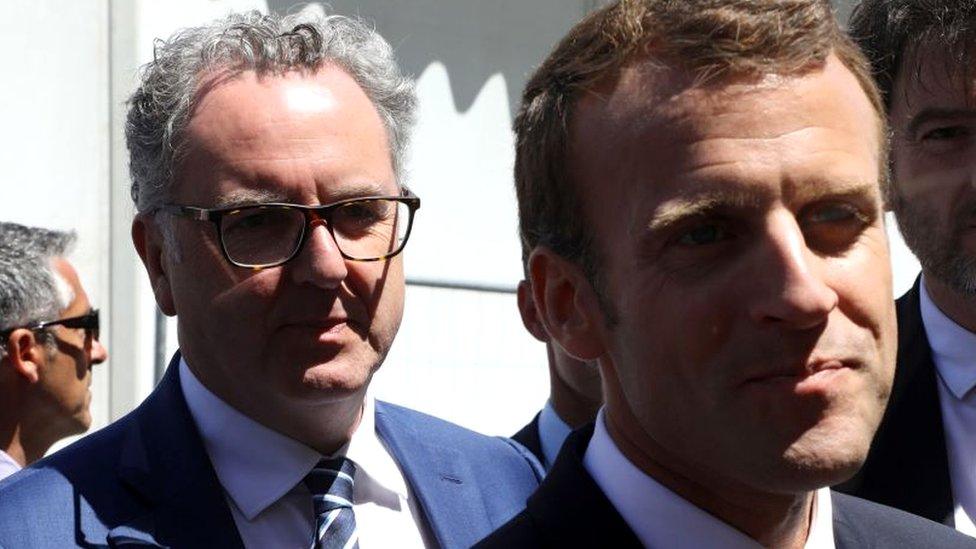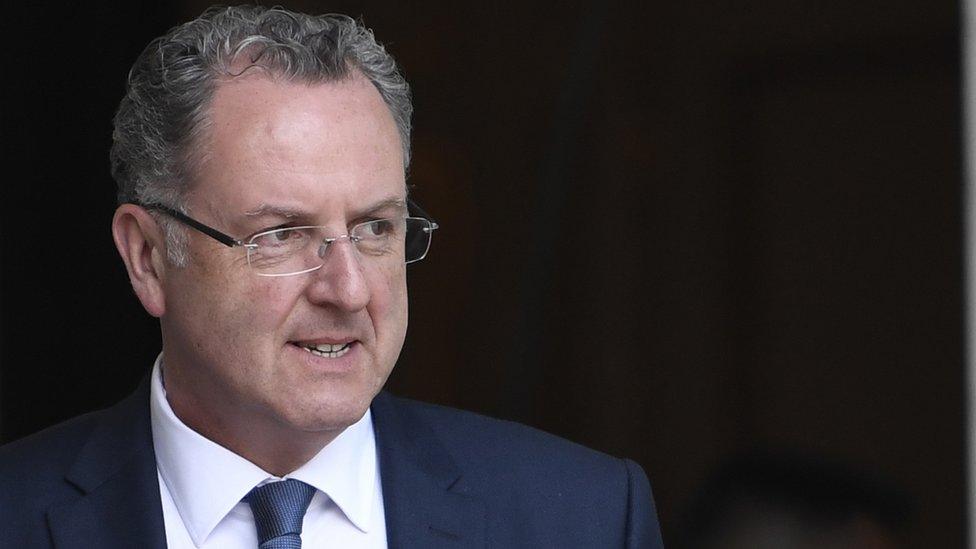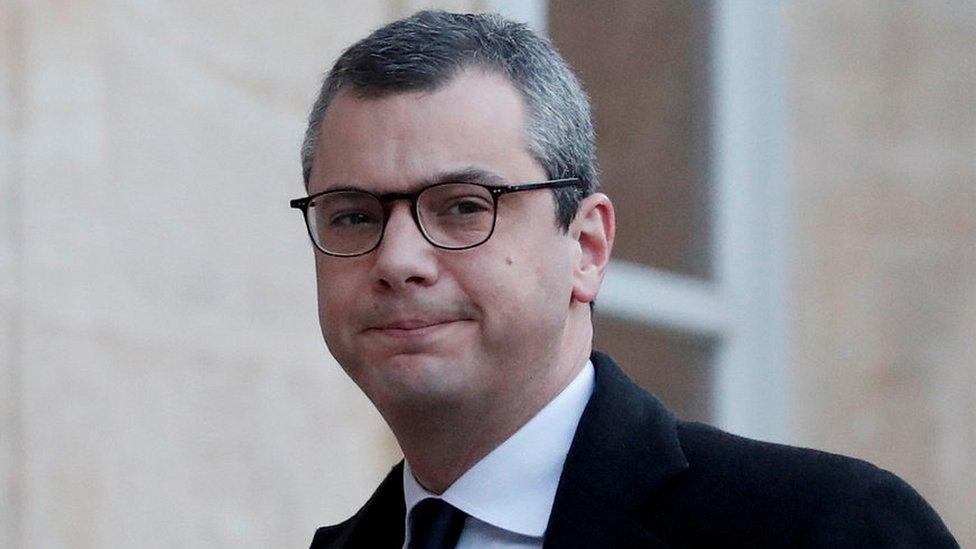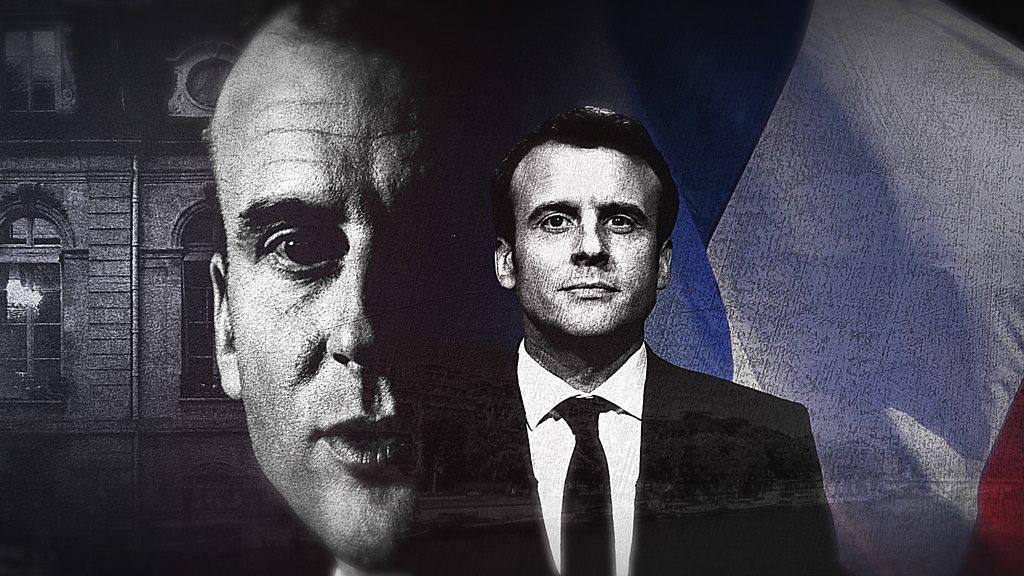Macron ally Ferrand investigated over financial misconduct
- Published

Richard Ferrand (L) was a key member of Emmanuel Macron's presidential campaign team
A close ally of French President Emmanuel Macron is being investigated over allegations of financial misconduct linked to property deals.
Richard Ferrand, the president of the French National Assembly, is alleged to have benefited improperly from business agreements made seven years ago.
Mr Ferrand denies any wrongdoing.
The case could bring President Macron's promise to clean up politics into question, although many investigations are dropped before going to court.
Mr Ferrand, who was a prominent member of Mr Macron's presidential campaign team in 2017, is an important figure in French politics.
As speaker of the National Assembly, he ranks fourth in the state hierarchy under the French constitution.
What are the allegations?
Mr Ferrand is alleged to have used his position as head of a health insurance company to help his partner, Sandrine Doucen, land a lucrative property deal in 2012.
He is said to have helped Ms Doucen acquire a property with the knowledge that his company, a Brittany fund called Mutuelles de Bretagne, intended to rent as office space. She is reported to have made a large sum from the deal.
The allegations, which first surfaced in 2017, forced Mr Ferrand to resign as a government minister in Mr Macron's cabinet.
Charges of alleged misconduct were later shelved, however, after a court in Brittany ruled that there was no basis for prosecution, allowing Mr Ferrand to return to politics.
But on Thursday, prosecutors announced that they were proceeding with the case and charged Mr Ferrand with conflict of interest.
Following the news, Mr Ferrand said in a statement that he would remain in his assembly post during the investigation, and that "no new element" had been produced in what he described as a case in which "there is neither harm nor victim".
President Macron later said that Mr Ferrand still had "all my confidence".
The French president's popularity has been volatile since he took office in 2017.
Mr Macron has been forced to abandon policy plans in the face of violent street protests by the "gilets jaunes" (France's yellow-vest movement) and has become a target for nationalist politicians across Europe.
Can the French leader unite a divided Europe?
- Published1 June 2017

- Published4 June 2018

- Published9 April 2019
